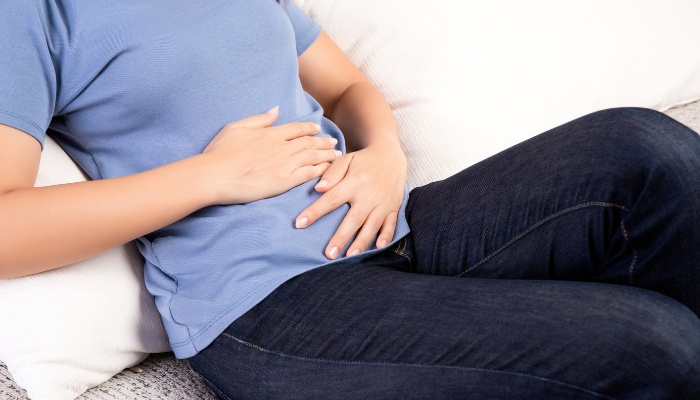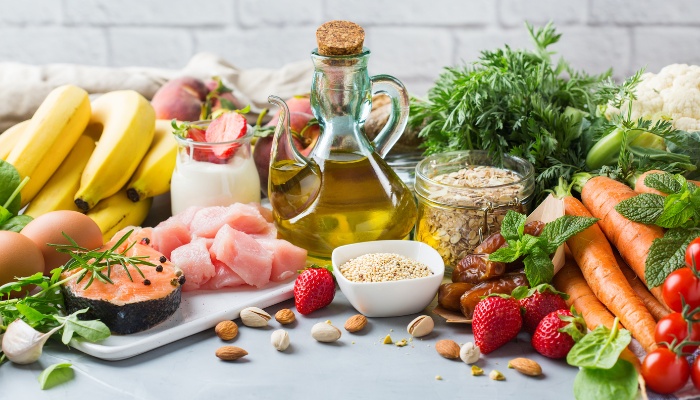Although science and medicine are important in your fertility journey, it’s important to note that your dietary choices also play a significant role in the health of your eggs and your body’s recovery after retrieval.
What should I eat after egg retrieval? A colorful, plant-based Mediterranean-style diet is recommended following egg retrieval. This is a diet comprised of high-fiber, lean protein like skinless chicken and light canned tuna, fruits, vegetables, and whole grains to help combat bloat and improve digestion and overall bowel function.
During this stressful and emotional roller coaster (empowering fertility quotes here), it can feel like you are fighting a daily mental battle against something you can’t control.
The upside of nutrition during your fertility treatment is that this is one aspect of life that you can control.
Let’s discover the food types that can benefit you in the days following egg retrieval plus what to avoid, how long to rest after the procedure, and more.
What To Eat After Egg Retrieval
Not only can the following food groups help to ease the uncomfortable bloat and constipation that comes after your egg retrieval, but studies have linked a healthy Mediterranean-style diet to overall positive outcomes for fertility.
Here are the best foods following egg retrieval and their specific benefits to you during this time:
Foods High in Fiber
“Fiber is the most helpful food component to help with constipation,” notes fertility and prenatal dietician McKenzie Caldwell. Fruits and veggies are your top sources of dietary fiber.
As for specific meal ideas? Caldwell suggests a lentil and veggie stew as it’s great to prep ahead of time and contains the kind of fiber that is unlikely to add to your bloat.
Fruits and Vegetables
Dr. Sarah Zadek from the fertility support blog Bird & Be recommends apples, pears, and avocados as well as fruit and veggies that are rich in antioxidants, like berries, kale, and artichokes.
The antioxidants in these foods help to reduce inflammation in the digestive tract.
Kiwis are also a superstar fruit as they “contain a compound called actinidin that can help to stimulate a bowel movement,” Caldwell notes.
Anti-Inflammatory Foods
Following egg retrieval and indeed any phase of your IVF journey, the stress you’re likely to feel prompts the stress hormone (cortisol) to increase inflammatory activity in your body.
To help lower these cortisol levels and fight inflammation naturally, dietician Elizabeth Shaw of Shaw Simple Swaps recommends foods such as dark chocolate, bananas, black/green tea, and probiotics such as raspberries that collectively decrease cortisol levels and help increase “good” gut bacteria.

Whole Grains
Minimally processed whole grains are your friend following egg retrieval — things like quinoa, brown rice, farro, oats, oat bran, and wholewheat pasta can help to soften stools, make your bowel movements more regular, and lower your chance of constipation.
Be sure not to introduce too many whole grains at once in your diet as this can worsen bloating and constipation symptoms.
A few slices of wholegrain bread or a cup of cooked oatmeal/wholewheat pasta is a good serving to start with.
Lean Proteins
Dietician Elizabeth Shaw suggests incorporating seafood as a good source of lean protein.
Things like shrimp, tuna, and white fish are all great sources of omega-3 fatty acids and vitamins D and B12, which help lower inflammation.
Skinless/boneless chicken breast, pork loin, and beef are also top lean protein choices.
If you’re concerned about the mercury levels of tuna, the FDA and EPA jointly approve of 2-3 servings of light canned tuna per week when trying to conceive.
Nuts and Seeds
To help prevent constipation in the days following your retrieval, Shaw recommends adding things like “flax and chia seeds to a smoothie.”
Shaw also advocates high-sodium snacks like salted mixed nuts to help minimize the effects of OHSS (Ovarian Hyperstimulation Syndrome — a common condition post-retrieval due to the ovaries being overstimulated by fertility treatment).
Some Dairy
Dairy can cause bloating and cramping in those with lactose intolerance, so if you suspect you might have this, dairy is best avoided.
Otherwise, small amounts are fine — preferably low-fat dairy products like unsweetened yogurt, cottage cheese, and low-fat milk as these can help you maintain healthy blood pressure and are easier on your digestive tract.
What Foods To Avoid After Egg Retrieval
Any foods that cause inflammation, make bloating worse, or increase blood pressure are best avoided after your egg retrieval. Things like:
- Dairy (if lactose intolerant)
- Beans
- Cruciferous veggies (broccoli and cauliflower)
- Red meat and any processed meat
- Sugar
- Sweets
- Margarine
- Peanut butter
- Fried and processed foods
- Refined carbs (pizza dough, pastries, white flour, most breakfast cereals)
What To Drink After Egg Retrieval
Water and fresh fruit juice are great ways to stay hydrated and increase your intake of healthy vitamins.
Prenatal dietician Caldwell also recommends electrolyte drinks to provide a little extra hydration for your body: “G2 gatorade and Liquid IV are my go-to electrolyte beverages.”
What Not To Drink
Alcohol should be avoided throughout your fertility treatment for a better chance of success.
To be on the safe side, caffeinated drinks such as coffee, tea, and soda are also best avoided for at least 10 days following egg retrieval, according to Dr. Mohammed Zare Bidoki from Raadina Health as this can help prevent OHSS.
Some studies in mice have suggested that caffeine may inhibit oocyte maturation and affect egg quality.
While there is a lack of research into the human impact, it probably won’t hurt to try and limit your caffeine intake around this time.
How To Make Bloating Go Away After Egg Retrieval
To help beat the bloat, nutritionist Melanie Brown shared the following tips with IVF Babble:
- Increase your fluid intake to help flush out what you are retaining.
- Eat the right kind of fiber (insoluble fiber will add bulk to your waste matter, helping it pass through the gut more easily).
- Avoid artificial sweeteners and fizzy drinks.
- Try an activated charcoal supplement (this helps to safely absorb gas and cut down on bloat).
- Drink fennel tea (this acts as a mild diuretic to help flush toxins and excess fluid from the body).

How Long To Rest After Egg Retrieval
It’s advisable to rest completely for a couple of days after your procedure.
By this, we don’t mean full-time bed rest, but you should try to go easy when it comes to your usual physical activity, so refrain from workouts (other than a gentle walk) to help you recover.
What To Avoid After Egg Retrieval
The egg retrieval process is physically demanding on your whole body, but your ovaries will, of course, take the brunt of this, feeling tender, sore, and swollen.
It’s crucial therefore to avoid anything that may put unnecessary strain on the body.
For this reason, fertility experts advise against sex for two weeks following an egg retrieval.
Any other activity that engages the pelvis such as heavy lifting and moderate to intense exercise should also be abstained from for at least a couple of weeks.
Due to the increased risk of vaginal infection, the University of Washington Medical Center also advises using pads or panty liners instead of tampons for 1 to 2 days afterward if you experience spotting or light bleeding.
Related Questions:
How Long After Egg Retrieval Does Fertilization Occur?
According to GENESIS Fertility, the embryos are normally checked on “the morning following your egg retrieval” to see how many have fertilized normally.
From then, the resulting embryos are left to incubate for 3 to 5 days in the lab before the best embryo(s) are selected for transfer into the uterus.
Why No Bath After Egg Retrieval?
It’s common for some women to experience vaginal discharge and bleeding after the procedure, so many clinics and doctors tend to discourage both hot baths and long hot showers following an egg retrieval due to concerns it may increase the risk of infection.
A brief cool or lukewarm shower should be fine.
Closing Thoughts
The bloat and digestive issues following an egg retrieval can be a pain, but it may help to know that this discomfort is simply your body responding in the way it should following this invasive procedure.
Thankfully, there are dietary choices you can make in the days and weeks following your egg retrieval to help ease these symptoms.
Consume plenty of fruits and veggies, anti-inflammatory foods like dark chocolate and bananas, and whole grains like quinoa and oat bran.
Good luck with your recovery, and don’t forget to go easy!
Rebecca is a seasoned copywriter and researcher with over a decade of experience, specializing in parenting topics. With a passion for all aspects of raising children, from breastfeeding to potty training.

